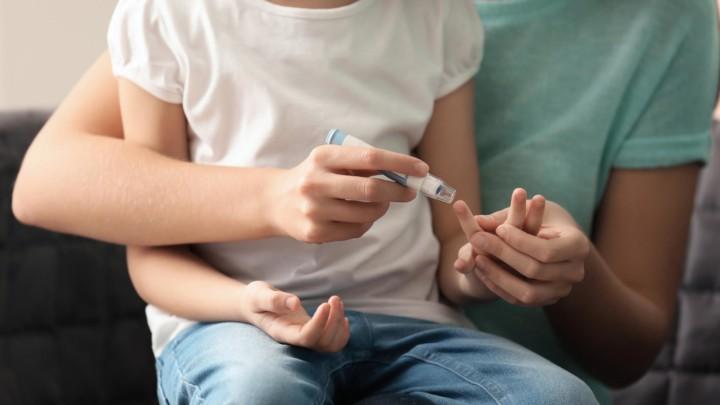
Analysts use the material comprising several registers to investigate and narrow the welfare gap among families with children in Finland. “Completing the application took surprisingly long,” says Pasi Lehtimäki from consultancy company Gofore.
The application was one of the most extensive ones received by the Finnish Social and Health Data Permit Authority Findata by that time.
The joint project of Finnish municipalities sought to use data compiled from the data of six different controllers to examine how cities can narrow the welfare gaps of families with children.
The objective of the Lapsiperheiden edistynyt analytiikka (LEA) project (English: Advanced analytics of families with children) was to understand the overall situation of families with children and develop better services. The study was carried out in four parts in different municipalities and cities. Vaasa and Laihia, Tampere and Ylöjärvi, Vantaa, Pori and the consulting company Gofore were involved.
According to Gofore consultant Pasi Lehtimäki, few authorities see the welfare of families with children in a sufficiently diverse manner. One silo may observe the child’s mental health, another one their learning outcomes.
“So far, no party has studied the many dimensions of family welfare at the same time. With the data, we can also study families with children more extensively than as a family unit, i.e., also taking into account data concerning grandparents or a remote parent living in a different place of residence,” Lehtimäki says.

“Controllers need precise definitions of variables to be able to extract data. We had to carefully define, for example, who is to be counted as a child. The aim was to find a definition that could be used to extract the necessary data from all different controllers,” says Lehtimäki.
– Pasi Lehtimäki, PhD, Gofore (photo: Gofore)
Different register datasets paint a multifaceted picture of families
In the project, Gofore analysts utilised data from the Population Information System, the Finnish Institute for Health and Welfare’s care registers and Kela. They also analysed the register data of the Finnish Centre for Pensions, the Tax Administration and Statics Finland. The data paint a picture of, for example, the health data, income and educational level of families.
Pasi Lehtimäki from Gofore applied for a data permit from Findata for social and health care data used in the project. In principle, the application process is simple: the researcher sends a data permit application online, and the Findata processor checks that the application contains the information required for the permit and finds out from the controllers how much it costs to extract the data. If necessary, the processor directs the applicant to specify matters required by the EU’s General Data Protection Regulation and Finnish legislation – such as only retrieving the necessary information.
In practice, however, getting the permit was more challenging than expected. Lehtimäki and other data scientists had carefully planned the project schedule. Yet, they couldn’t follow it. It took several months to determine that the extractions and the information retrieved corresponded to the need for use.
“Controllers need precise definitions of variables to be able to extract data. We had to carefully define, for example, who is to be counted as a child. The aim was to find a definition that could be used to extract the necessary data from all different controllers,” says Lehtimäki.
The project generated a wealth of information
Information security and the preservation of people’s privacy were high on the LEA project’s priority list. Findata pseudonymises all data, which means that no-one’s identity can be deducted from the data. After receiving the data permit, the researchers processed data in a secure remote use environment of Findata, called Kapseli, which can only be accessed by designated persons under the obligation of confidentiality.
“In the analysis environment, we were only able to use tools uploaded by Findata. We could not import any data or download anything,” Lehtimäki says.
Even when pseudonymised, personal data is protected particularly well. You can export your own data and software to the Kapseli environment only through Findata.
Lehtimäki cannot comment on the results of the project, as turning the data into conclusions and services remains the duty of the cities involved in the project. The cities aim to use the data to identify and balance regional welfare gaps in families with children. The data collected in the project is a treasury for that purpose.
“They will be able to find something new with the operating model we produced on the basis of the data for a long time.”
Researcher’s tip for those applying for a data permit
“If you need to specify the definitions of data extractions, it will be mainly handled by e-mail. The more you need to supplement the application, the more you have to figure out with Findata. It is a good idea to reserve time for this. Reply to e-mails as quickly as possible! If you have six months of discussion with a week’s response time each time, you will waste valuable time on the project.”
– Pasi Lehtimäki, PhD, Gofore
Read more
What is Findata?
- Findata is a one-stop shop for the secondary use of Finnish social and health care data, operational since 2020. Its operations are based on the Act on Secondary Use of Social and Health Data, which entered into force in 2019.
- Findata grants data permits for the use of data for example scientific research, statistics and planning and reporting duty of an authority.
- Its aim is to improve the data security and protection of social and health care data and enable their effective use.
- Findata operates in conjuction with the Finnish Institute for Health and Welfare THL, separate from THL’s other activities.
This article is the first part of the Datasta tutkimukseen (From data to research) article series published by Findata that sheds light on Findata’s activities and the changes brought about by the Act on Secondary Use. In the series, we showcase studies that utilise data available through Findata.


